#eating disorder symptoms
Text
reallyy determined not to use symptoms tonight. I successfully went for two brief walks without going to the liquor store so that's a success, I suppose. and having dinner now...this next few hours is the bewitching hours. fingers crossed
#personal#eating disorder#eating disorder urges#eating disorder symptoms#anorexia#bulimia#ednos#osfed#actuallyanorexia#actuallybulimia#edulting#meal plan#dinner#symptoms#anxiety
8 notes
·
View notes
Text
Felt less nervous about eating today. My impulses to participate in old symptoms were kind of strong but we prevail!
🌸 You are capable of prevailing too!
~whispy
#mental health#disordered eating thoughts#eating disoder recovery#eating disoder trigger warning#recovery#anorex14#bing3 eating#bulim14#tw b1nge#body postitive#ed symptoms#ed symptom#eating disorder symptom#eating disorder symptoms#binge#anorexia#bulimia#binge eating#tw binge#nervous#anxious
3 notes
·
View notes
Text

Symptoms of Eating Disorders
The notion that all eating disorders show up in people's weight is wrong. The fact is people of any size and shape can have eating disorders. Since eating disorders are difficult to find out, they remain hidden and can get worse over time. If you or your loved one are suffering from an eating disorder, the following symptoms can occur.
1 note
·
View note
Text
Electrolytes and why they're important especially when water f4st!ng:
Electrolytes are electrically charged minerals, such as sodium, potassium, calcium, magnesium, chloride, bicarbonate, and phosphate. They are involved in various physiological processes.
During a water f4st, the body can lose electrolytes through various means, such as urine, sweat, and even through breathing.
Without sufficient intake of electrolytes, the body may experience imbalances that can lead to various health issues including:
muscle cramps, dizziness, weakness, irregular heartbeats, and in severe cases, even life-threatening conditions such as de4th.
Here's a breakdown of each electrolyte and its role in the body:
Sodium (Na+):
Role: Sodium is the primary extracellular cation (positively charged ion) and plays a vital role in maintaining fluid balance and blood pressure. It is essential for nerve impulse transmission and muscle function.
Source: Commonly found in table salt (sodium chloride) and many processed foods.
Potassium (K+):
Role: Potassium is the primary intracellular cation. It helps regulate fluid balance, nerve impulses, muscle contractions (including the heart), and maintains proper cellular function.
Source: Found in various fruits and vegetables, such as bananas, oranges, potatoes, and spinach.
Calcium (Ca2+):
Role: Calcium is essential for maintaining strong bones and teeth. It also plays a key role in muscle contractions, nerve transmission, blood clotting, and cell signaling.
Source: Dairy products, leafy greens, nuts, and fortified non-dairy milk.
Magnesium (Mg2+):
Role: Magnesium is involved in hundreds of enzymatic reactions in the body, including energy production, protein synthesis, muscle and nerve function, and maintaining healthy bones.
Source: Found in nuts, seeds, whole grains, leafy greens, and legumes.
Chloride (Cl-):
Role: Chloride is the major extracellular anion (negatively charged ion) and works closely with sodium to help maintain fluid balance and osmotic pressure in cells.
Source: Commonly found in table salt (sodium chloride) and many processed foods.
Bicarbonate (HCO3-):
Role: Bicarbonate is involved in regulating the body's acid-base balance (pH level) and is a crucial component of the bicarbonate buffering system.
Source: The body produces bicarbonate as part of normal metabolic processes.
Phosphate (HPO42-):
Role: Phosphate is essential for bone and teeth mineralization, energy production (adenosine triphosphate, ATP), and serves as a component of DNA and RNA.
Source: Found in various foods, including meat, dairy products, nuts, and whole grains.
To prevent these complications and support the body during a water f4st, it is crucial to supplement with electrolytes.
Many people who practice prolonged water f4st!ng or intermittent f4st!ng find it helpful to take electrolyte supplements or consume electrolyte-rich drinks to ensure they maintain proper mineral balance throughout the f4!sting period. However, it is essential to consult with a healthcare professional before starting any regimen or supplement routine, as individual needs may vary.
#making a list of signs/symptoms of low electrolytes next#ed not ed sheeran#ed not sheeren#ed no sheeran#disordered eating thoughts#tw ana shit#tw ed diet#ed bllog#anorex14#ana trigger#ana shit#tw ana diary#4norexi4#thin$spo#thinspø#th!n$spo#⭐ving#⭐ve#tw ed rant#ed vent
2K notes
·
View notes
Text
I need to destroy myself to feel satisfied
#bpd stuff#actually bpd#actually mentally ill#bpd symptoms#mental problems#mentally fucked#actually borderline#borderline blog#bpd problems#bpd struggles#tw self destructive thoughts#tw self destruction#tw s3lf harm#tw sui ideation#tw depressing thoughts#tw depressing stuff#tw eating issues#tw ed rant#major depressive disorder#depressing quotes#depressing shit#bpd#depressing life#bpd things#bpd thoughts#depressiv#bpd shit#bpd traits#tw sui implied#manic depressive
585 notes
·
View notes
Text
when youve been suffering your ed for years and see a newbie say "i cant wait to reach my gw so i can eat whatever i want!!!"

#like...#who wants to tell them#that this isnt a diet and you most definitely wont be able to stop the symptoms of your disorder on a whim#that this is a hellish spiral that will last for years for a decade for longer than that#lmaoooo dont take this too seriously but also bfr#pro ana#anamia#proo ana#pro x ana#eating disorder#osfed#anorexia#bulimia#ednos#actuallyed#thinsp0#malespo#malesp0#male ana#proana#edblr
390 notes
·
View notes
Text
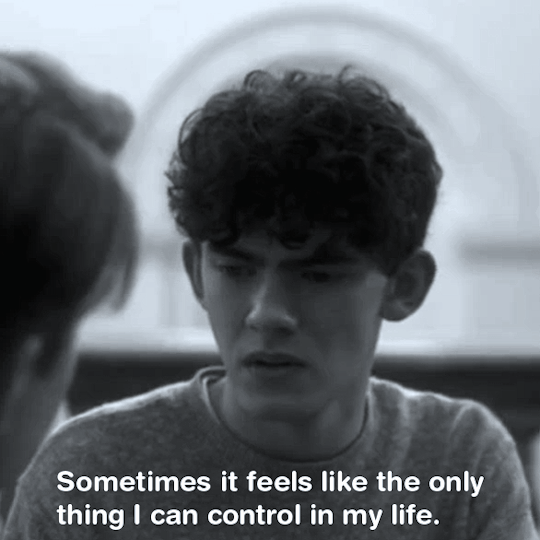



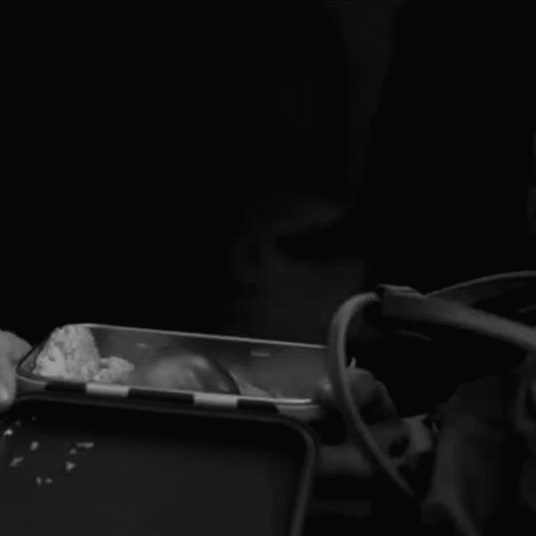

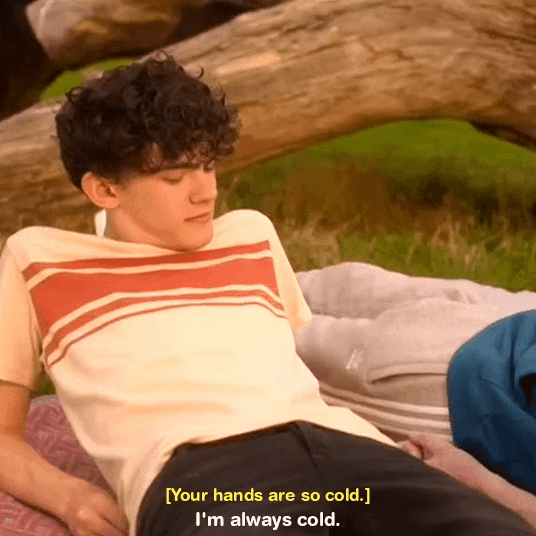
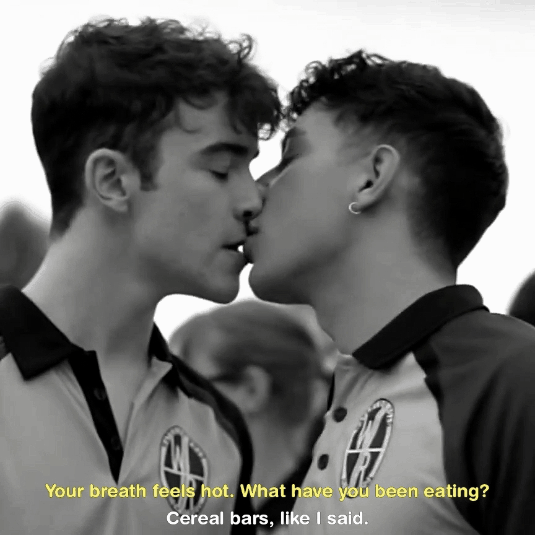
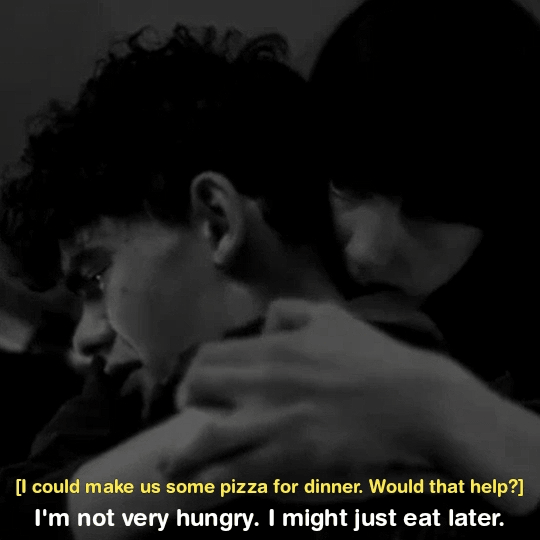

ED Portrayals in Television ↳ Anorexia (Heartstopper) vs. Bulimia (Waterloo Road)
#heartstopper#heartstopperedit#tvedit#charlie spring#waterloo road#waterlooroadedit#preston walters#waterloo road series 12#nick nelson#tori spring#kai sharif#tw eating disorder#tw disordered eating#tw ed#tw flashing gif#my gifs#also this isn't to say that an ed can't have certain symptoms of another ed#there is no 1 way an ed is supposed to look#and there can be similar traits that are not often depicted for both while still falling into one type
67 notes
·
View notes
Note
I've got a headcanon of jamie having problems with food, not an eating disorder, but some kind of issues. Between his autistic coding (flappy hands et al) and the food behaviours which can come with that, and his growing up poor (council estate) and the strict nutrition plan he's on for football, I just see him as having a limited diet and some issues around trying new foods.
I can definitely see that! Like when he's little, Georgie finds a handful of foods that a) Jamie can eat b) she can afford and c) he can prepare on his own if necessary, and then just never really has the time or money to try expanding beyond that since she likely wouldn't be able to afford to replace anything Jamie hadn't tried before if it turned out he couldn't eat it.
So his first consistent encounter with new foods would probably be from school lunches — I don't really know how the football academy system works, but I assume the meals they eat on campus/at training are based around some kind of meal plan guidelines — and staying over or living with his dad. James seems like he would both have very strong opinions about what Jamie should and shouldn't be eating for football (likely without any scientific basis) and be a "suck it up and eat it anyway" type of parent when it comes to sensory issues, which is obviously a pretty terrible combination.
I could see pre-teen/teenage Jamie developing a relationship with food where stuff on his meal plan falls into the narrow category of both providing the necessary nutrients for football and not triggering his sensory issues, while anything outside of that is automatically unappealing because he's never really had the experience of being able to try a bit of something, find that he hates it, and not have to finish eating it anyway. Which could also contribute to his difficulty eating during his 3x11 depression spiral, as the prospect of seeing his dad again might bring up some of those negative associations with food and (at least for me) stress tends to worsen sensory issues.
#i love the phrase “flappy hands et al.” autism symptoms when they co-author a paper#ted lasso#jamie tartt#autistic jamie tartt#fic: the hedgehog's dilemma#sort of? headcanons from that universe at least#tw food#tw disordered eating#also sort of but tagging that one to be safe#asks#in theory i have a tagging system but i can never remember if i tag asks as “asks” (plural) or “ask” (singular)#apologies to anyone who has tried to find something on here#kvetch oc
51 notes
·
View notes
Text
Summary: Unmasking Autism by Devon Price has a lot of good insights, but in my opinion could use more nuance about the harms experienced by early diagnosed autistics and autistics who can't mask.
I've been listening to the audiobook of Unmasking Autism by Devon Price. There's a lot of really good information in it and a lot that's really relatable as a late diagnosed, trans, fairly high masking autistic and I have a few criticisms of it:
It seems that Dr. Price falls into the common "grass is greener" pitfall. The book is focused on the harms of masking and the way that oppression forces many marginalized people to mask. It also discusses the way that this causes many marginalized people to not be recognized as autistic, which robs us of a valuable tool for understanding ourselves and our struggles. I felt that the way these very really harms were discussed sometimes minimized the also very real harms that come with being diagnosed as autistic as a child, especially for marginalized people. These discussions also didn't acknowledge the fact that some autistics cannot mask and experience specific harms because of that.
Similarly, I felt there were some missed chances to emphasize the internalized ableism component of the urge to distance ourselves from the label autism. This was framed in a discussion about how certain stereotypes about autism can make it more difficult to recognize and identify with autism within ourselves, but many of those stereotypes, like "the nonverbal toddler in bulky noise cancelling headphones at the grocery store, do represent some very real autistics who are also valuable human beings. This was addressed some later in the book than when this criticism first arose for me, but I think it's something that should have been more emphasized throughout. Similarly, there could have been more emphasis that people who do fit certain other labels also deserve to be treated better when when discussing the stigma that comes with some misdiagnoses autistic people commonly receive, such as personality disorders.
At least as far as I've gotten, there's a fair amount of discussion of eating disorders among autistic people, but this discussion has been strictly about restrictive eating disorders and primarily anorexia. It's fine to focus on that, but if you claim to be discussing eating disorders generally you also need to talk about bingeing. ARFID should also be included, especially if you're talking about autistics!
There's a lot of discussion about maladaptive drug use and substance use disorders among autistic people, but so far I feel there's been a lack of recognition that drug use can be adaptive as well.
So far, I think I would overall recommend the book. However, I do also worry about what people reading it without also having heard the perspectives of high support needs and/or low masking autistics may take away from it. Similarly, I also think people reading it should be sure to seek out the perspectives of people who do identify with BPD, NPD, schizophrenia, and other highly stigmatized disorders that autistic people are sometimes labelled with.
#unmasking autism#actually autistic#autistic masking#masking#eating disorders#ed cw#drugs cw#harm reduction#also kinda hard to figure out how best to talk about “misdiagnosis” as a psych critical person lol#almost the entire DSM is based on describing clusters of symptoms that *tend to* occur together#not some objective truth#AND sometimes people get labeled with something that really doesn't fit their cluster of symptoms#and then that label gets used to assume what their struggles really are and how they should be treated#also also I'm very the DSM is fake but also neurodevelopmental disorders sometimes feel#like more consistent clusters than mental illnesses#with the recognition that that distinction is ALSO a construct#now I am rambling about psychiatry criticism in the tags#anyways unmasking autism is interesting but also plz listen to HSN/low masking autistics
18 notes
·
View notes
Text
idk if anyone else does this but i love this thing i do that i'm now calling "autistic food math" where i take the childhood trick of eating the vegetables first to get them out of the way to its logical extreme, wherein i calculate the exact order to eat what's on my plate in order to return maximum sensory enjoyment and minimize sensory overload
example: i ordered sushi, which is one of my favorite foods, and i love opening the container and counting up how many i have of each roll so i can make a plan for the order i'll use to alternate them, and i need to take into account what's in each roll and what it's topped with to make sure i don't have too many similar flavors next to each other, or if one is spicier than others it can't go last or the spice will linger too long and it'll hurt, and usually i'll do it in order from least favorite to most favorite (even though i love all of them or i wouldn't have ordered them lmao) so my last bite is always the best one
this power can also be used for evil when i'm in a pattern of disordered eating, but at its best it's like beta testing the meal before i actually eat it sbsjskakssk
#asd tag#food cw#disordered eating mention#talia#tagging you in this instead of texting it to you bc you're working on your essay ily ♥️#this is also a perfect example of a symptom that overlaps in multiple types of neurodivergence#the behavior alone might resemble the behavior of someone with ocd but it's not a compulsion for me#i do it because it enhances my enjoyment of the food while attempting to mitigate potential sensory issues#but if im not paying attention or i'm w ppl or i'm trying to eat quickly before leaving or something it sometimes doesn't even occur to me
254 notes
·
View notes
Text
if that elf's ARFID is treated with more grace than the fans certainly treat her then i'll read dunmeshi
#ikildaman shut the fuck up#+it doesnt matter if she doesnt actually have disordered eating nobody corrent me ad nauseum#mischaracterisation for 1 post sure is a small price 2 pay in the name of Google Arfid#and like.... sure....#by all means the complaints ive seen about how she acts abt food/some food cld just be a symptom#of it being written to be really fucking annoying.#if thats the case tho i just wont pick it up then will i. lmaos#but from what i've heard and seen ryoko kui is quite the opposite of fucking stupid so i'd like to hope theres a good chance she#may have also written this ''''pickyness'''' with some informed intent#'why is she like that esp when the food looks so good shes so annoying....' we can hear you. haha. we can hear you
7 notes
·
View notes
Text
halfheartedly made a goal to not binge and purge tonight; it's funny how easy a symptom becomes hard to break. almost made it, was relaxing after evening snack but then started snacking...I feel guilty and want to escalate into further symptoms but don't really have any food and it's too late to order something. i should just go to sleep but I worry about my weight in the morning
#personal#eating disorder#eating disorder symptoms#eating disorder recovery#anorexia#bulimia#ednos#osfed#actuallyanorexia#actuallybulimia#actuallyED#edulting#urges#eating disorder urges#binge#purge#binge and purge#snacking#weight#sleep
9 notes
·
View notes
Text
Anyone else use to hate fruits and veges? It was a weird cliché for eating disorders that applied to me. I only liked just one type of fruit and vege and that’s it.
Having the privilege of seeing a *nutritionist* during the early stages of my recovery, I now incorporate all types of fruits and veges into my meals since it satisfies parts of my hunger that I would originally substitute with binging/purging/restricting.
*yes, seeing a nutritionist is a privilege. Not everyone can afford the time and money for one. I definitely couldn’t for the longest time.
#mental health#eating disoder recovery#disordered eating thoughts#recovery#eating disoder trigger warning#anorex14#body postitive#bing3 eating#bulim14#tw b1nge#binge eating#bulimia#anorexia#tw binge#ed recovery#ed diary#ed symptoms#symptoms#eating disorder symptoms#fruits#fruit#veges#vegetables#diet culture#nutritionist#nutrionists#nutrition#meal plans#meal plan
1 note
·
View note
Text
having a lot of thoughts about eating disorders + how some of us end up developing chronic illnesses directly because of the physical effects of our eating disorders and how Cruel doctors can be about that and just trying to untangle so much shame and blame from that experience rn
#personal#vent#eating disorder tw#disability#idk. i don't quite have the words for this right now but#had another meeting with my doctor where they said yeah its your fault that you are now physically disabled for life#(literally i was chronically ill and physically disabled before i even developed an eating disorder because of CAH and comorbidities but#(they love to ignore that !)#which is like. i do not tie any morality to health and it should just be#a completely neutral statement. that my eating disorder caused other physical complications#they said i'm going to have orthostatic problems the rest of my life.#'since your gastroparesis was caused by your eating disorder that means there is no point in treating it'#which is so funny bc literally every time i see her my dietitan wants me to get a feeding tube! lmfao!!!!#i am actually doing pretty well in recovery in terms of meeting my energy needs through food. but i stopped being able to orally supplement#so my dietitan wants a tube for ARFID nutrient reasons. supplemental nutrition etc etc. and she thinks it will help gastroparesis symptoms#they also think i have osteoporosis and want to test me for that#when i had to use forearm crutches/ wheelchair because of physical ed complications doctors were SO fucking rude even though they were#the ones PRESCRIBING IT!!! like!!! you all are the ones telling me i HAVE to do this!#idk i also have a friend with permanent brain damage. from seizures in the refeeding process#and her doctors are so fucking rude to her all the time.#it makes me so mad
49 notes
·
View notes
Text
The ed/food based OCD thoughts have been relentless today. It's just getting worse and worse day by day. I think I probably spent at least 6 hours today unable to escape horrible food research and food-thought spirals, completely trapped in my brain panicking and obsessing. I just started the prozac and it's supposed to help with the OCD but idk how I'll be able to measure if it's doing anything when my OCD has become triggered more severely than it has been in ages lol. But that's a problem for future me as I'm not even up to a therapeutic dose yet. Anyway, the food stuff is just...it's just horrible, it's so awful right now. I wish my therapist wasn't away, I'm able to do a lot of stuff on my own but I've never had success dealing with this type of food based obsessional thinking without her help. At least deciding to make this post cut off the horrible spiral I've been in for the last hour. Maybe now I can transition to reading fanfiction or something instead of going back to looking at vegan recipes.
#text post#my post#eating disorder cw#eating disorder tw#just in case#my psychotic symptoms are also worsening :)#not so much obvious psychosis like my delusions#but my tics and stutter and other catatonic and disorganized symptoms are increasing
15 notes
·
View notes
Text
no one knows me like the bathroom floor does
#bpd stuff#actually bpd#actually mentally ill#bpd symptoms#mental problems#mentally fucked#actually borderline#borderline blog#bpd problems#bpd struggles#mentally exhausted#vent post#tw vent#tw disordered eating#tw depressing thoughts#tw depressing stuff#tw sui vent#bpd#major depressive disorder#depressing quotes#depressiv#bpd things#bpd traits#bpd shit#bpd thoughts#depressing life#mental illness#isolation#mood swings#born to die
297 notes
·
View notes